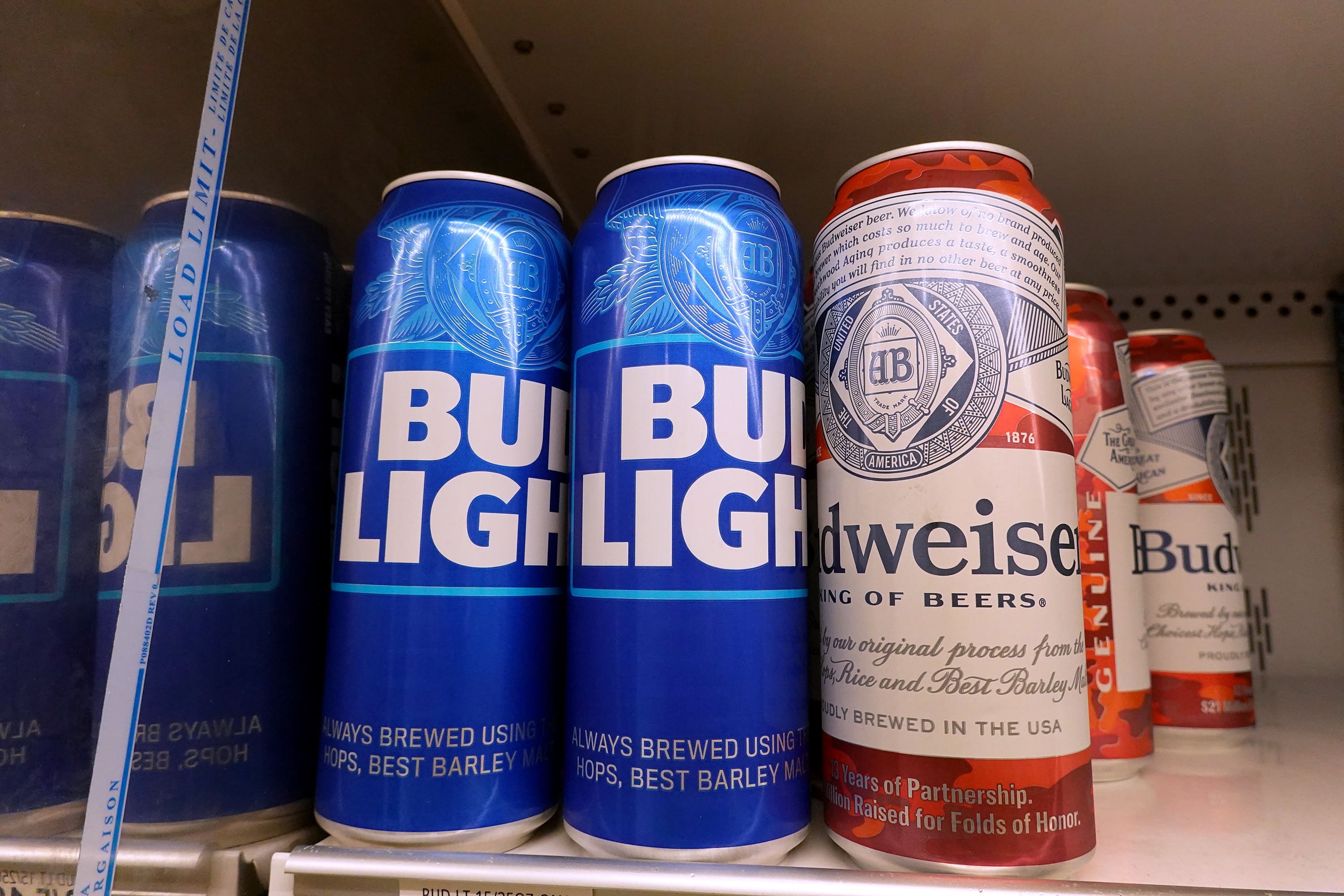Bud Light, made by Anheuser-Busch.
Joe Rydell | Getty Images
Anheuser-Busch InBev, the world’s largest brewing company, on Tuesday beat expectations for the third quarter, despite a continued decline due to controversy over its online Bud Light campaign.
Revenue rose 5% during the period to $15.57 billion, beating the company’s forecast of 4.7%. This came despite a 3.4% decline in volumes, with growth in the Middle East, Africa and Asia Pacific offset by “weak” performance in Europe and weak sales in the US.
The Brussels-listed company’s shares rose 3.5% in early trading as investors cheered the announcement of a $1 billion share buyback to be implemented over the next 12 months. The company also announced that it has agreed to a cash tender offer for up to $3 billion of outstanding bonds as part of its “focus on debt reduction.”
However, the company said Bud Light – which lost its position as the best-selling US beer over the summer amid a conservative-led boycott, in protest of its partnership with transgender influencer Dylan Mulvaney – impacted US performance.
Revenues in the US fell by 13.5%, while earnings before interest, taxes, depreciation and amortization (EBITDA) in the country fell by 29.3% due to “market share performance”, along with a loss in productivity and higher marketing spending.
This marks the second quarter in which the Bud Light controversy, which includes criticism of the company for failing to support Mulvaney amid the backlash, hurt sales in the United States.
Analysts at RBC Europe said the company’s performance stood out during a “turbulent quarter” of earnings, pointing to beating organic revenue growth and EDITDA growth expectations, despite weak sales in North America.
The repeat of previous guidance indicates the ability to offset issues in North America with momentum in other markets, while flat overall beer market share suggests the company was “somewhat protected by its mainstream presence,” analysts said.
Brewers are currently facing a range of challenges, including rising input costs and increasing pressure on consumer spending.
Its Danish rival, Carlsberg, on Tuesday mentioned Volumes fell 3%, but revenues grew 5.8%, roughly in line with expectations, as it warned that consumer sentiment in Europe and Southeast Asia could dampen beer market sales.
Meanwhile, Heineken, the world’s second-largest brewer, saw sales volumes fall 4.2% year-on-year and revenues rise 2% as it said sales were starting to be affected by higher prices.

“Typical beer advocate. Future teen idol. Unapologetic tv practitioner. Music trailblazer.”







More Stories
JPMorgan expects the Fed to cut its benchmark interest rate by 100 basis points this year
NVDA Shares Drop After Earnings Beat Estimates
Shares of AI chip giant Nvidia fall despite record $30 billion in sales